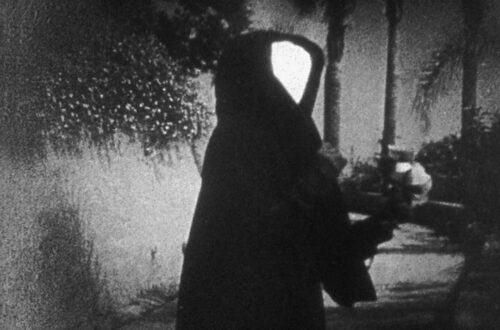
The Great Eastern Journey
The main character of this story is a journalist and daredevil Radim
Gabriel. He was born in Ostrava, Czechoslovakia, but emigrated to the
UK following the 1968 invasion. He settled in Southampton and there, in
his small apartment with the view of the Channel, he fought of definitely
the most courageous and controversial journey anyone had ever tried to
accomplish…
In 1971, he took off from Heathrow airport to Tokyo, Japan. From there
he boarded a ship to Vladivostok, USSR. So far, it may have seemed like
a normal and innocent trip. But it wasn’t in any possible way. The Cold
War might have reached its peak a few years ago and the ice between
the world superpowers slowly began to melt, but the USSR still was a
totalitarian state and for Radim, this could have had unthinkable
consequences. Since his fatherland was a part of the Eastern Bloc, he as
an emigrant was considered an enemy of the communist regime. Radim
could have been lucky he had managed to escape from the communist
part of the world, so coming back, even to the birthplace of it all, must
have seemed like a crazy move. But Radim knew what he was doing.
During his relatively short stay in the UK, he had come across a lot of
people with whose help he obtained many interesting and useful
contacts. One of them – his name hasn’t been revealed to this day –
made Radim fake ID and visa to the USSR. Radim’s plan was to go across
the Eastern Bloc from Vladivostok to Berlin. He didn’t intend to undertake the journey as a secret mission, he only wanted to show the
Soviets and the world he was able to get away with that.
On March 28, after the ship had arrived at the port and after a short
passport check, Radim set foot on the USSR soil.
He got on a train on the Trans-Siberian Railway. For two days, he was
travelling west to his first stop—Severobaikalsk, the city on the northern
shores of Lake Baikal. For a few days Radim was enjoying the wild nature
around the deepest lake in the world. He even dared to risk so much
that he was innocently chatting with some high army officials in the
hotel. A week later, he travelled further through Omsk, Yekaterinburg,
and Kazan to the capital city of Moscow.
Radim was impressed of the great palaces and wide boulevards in the
city centre. But when he went down to the underground, he was
completely flabbergasted. Corridors and platforms were as glorious and
decorative as rooms and halls in the palaces above.
He didn’t forget to visit the Kremlin and he even bowed to Lenin in the
mausoleum. Incredibly, he still had no problems about his identity and
fake ID that allowed him to visit such places with impunity.
However, Radim found out that the rest of the mighty capital was not so
great. There were large areas full of grey high and ugly blocks of flats
and even the people seemed more unhappy and unfriendly. The air was
more polluted and in some parts of the city it literally stunk. The time
has come to move on.
On April 21, Radim crossed the USSR border and entered the Polish
People’s Republic. He had realized that coming back to Czechoslovakia
would have been a great risk, so he decided to continue his journey
through Poland instead. He was shocked how poor the Polish were
compared to his homeland as he remembered it. Shopping centers were
almost empty, restaurant portions small and the air around the lignite mines almost toxic. For a week Radim was crossing the country
alternately on foot and by hitchhiking, until he finally got to the final
stage of his journey—East Germany.
Radim was slowly approaching his final destination and began to be
nervous. When he was confronted with a policeman thirty kilometers
before Berlin, he almost got a heart attack. But the encounter ended
well and Radim could continue.
Finally on May 4, Radim showed his passport to a soldier on Tempelhof
airport. An hour later, Radim was sitting in Boeing 707 flying to London.
Radim’s story quickly became public and his photography with the
Kremlin behind filled newspapers all over the world. This sensation
brought him to multiple TV interviews and was persuaded to release a
book about his adventure. A few months later, after long consideration
by the UK government, Radim Gabriel was honoured with the Order of
the British Empire.
The relations between the UK and USSR deteriorated and the number of
nuclear warheads aimed at the Islands increased.




